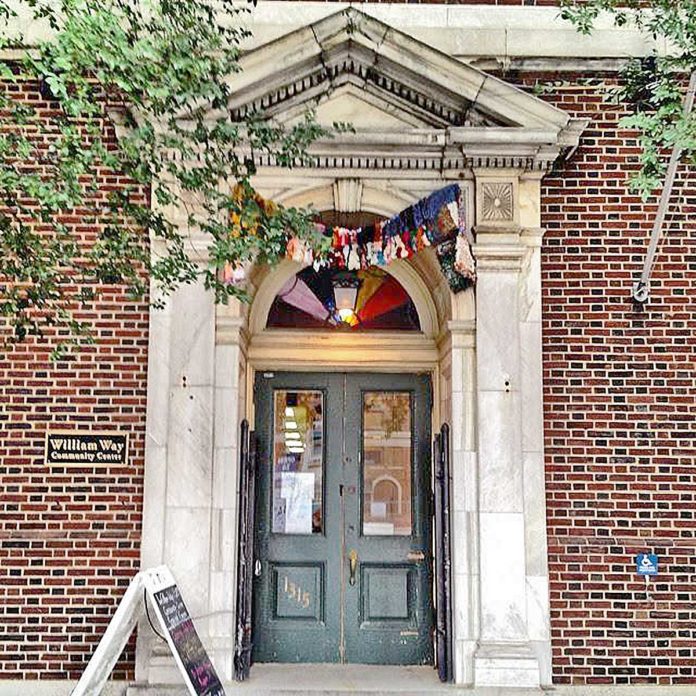For our community’s nonprofit organizations, the past few months have been challenging financially, from the inability to host in-person gatherings and fundraisers to the confusion surrounding government assistance programs to the basic emotional strain placed on employees and volunteers. However, many remain hopeful that their work in the community will continue to thrive despite setbacks.
The William Way LGBT Community Center serves as the physical hub of several groups. The center recently reopened to groups supporting individuals dependent on alcohol and drugs, while TransWay, a peer support group for trans and gender non-conforming people, has continued their physical meetings at 7 PM each Thursday evening. The Peer Counseling program did initially go on hiatus, but resumed with Zoom meetings.
“Our object is to open sanely and safely in a way to make both employees and visitors to the center feel comfortable,” said Bob Skiba, the collections curator in the LGBTQ archives at William Way. Since the shutdown began in March the Center began a weekly Zoom lunch called Queering the Quarantine. “We do them every Monday and Thursday. I have been loving them, even though it’s not normally my role. It’s a way for people to come into the center who may not necessarily be able to do so due to age, disability, or distance.”
William Way also hosted a virtual Pride and virtual Pride Run in which participants sent in photos or live videos of themselves running while socially distanced. “It’s really ironic,” Skiba added, recalling his attendance at the first Pride march in June of 1970, “to be doing these virtual events for the gay community.”
The programs which operate out of the center most-often rely on donations, grants, fundraisers, and trusts. Likewise, the Center is also a non-profit organization. Times have been tough not only for tenants, who are still paying their rent even though they can’t come in, but also their landlord. Additionally, the Center rents out spaces in the large Federal-style building on Spruce Street for an hourly fee, ranging from $25 to $100 an hour. But, the doors of the Lobby, the Philadelphia Room, the Community Room, the Living Room and the Mark Segal Ballroom have not opened to conferences, meetings, weddings or graduations since the lockdown.
“The community really relies on the Center, for which I am truly grateful,” Skiba said. “We were able to do a fundraiser to keep people paid. But, it’s difficult to raise money when you can’t meet people anymore. Our biggest fundraiser is the Indigo Ball in October, we don’t know what’s going to happen with that. During staff meetings we spend a lot of time talking about how we can keep going.”
The Philadelphia Gay Men’s Chorus (PGMC), which formed in 1981 and currently has 150 singers, has performed for over 100,000 attendees. Choral singing, however, has been identified by health experts as one of the most high-risk activities in terms of transmitting the COVID-19 virus. A chorus in Washington state made national news when it was learned that 87% of those who attended in-person rehearsals in March had contracted coronavirus. The last time the PGMC performed in public was for their December 2019 holiday shows.
“We have had to cancel two concerts and a major fundraiser due to the pandemic,” said executive director David Bielenberg, “and as a result we did not realize more than $65,000 in anticipated earned and contributed income this spring.” That amounts to nearly 20 percent of the PGMC’s annual budget.
The chorus has been fortunate so far to have received support from a number of emergency resources — including the Paycheck Protection Program, grants from the special COVID-19 Arts Aid PHL fund, the Presser Foundation, the Pennsylvania State Council on the Arts, and individuals.
“This support allowed PGMC to bridge that gap and end our fiscal year on June 30 without a deficit,” Bielenberg added.
R. Perry Monastero, Principal at RPM Consulting Group, shared some notes from research he’s been doing on how non-profits and other like organizations have been and may be impacted by the COVID-19 pandemic. He has thus far interviewed 34 leaders of organizations, mostly located on the East Coast, whose operating budgets fall primarily into the range of $2 to $50 million. This includes both LGBTQ-centric and non-LGBTQ-specific organizations.
“What I am seeing is fear of the unknown,” Monastero said, namely the duration of the pandemic and its impact on the economy. “Leaders express concern about the people they serve and how the pandemic is impacting them. They wonder, ‘how will this shutdown impact for the long-term our clients, patients, subscribers, students, participants?’”
But, for many organizations the show must go on, albeit in an adapted format. To continue their tradition of performing for Philly Pride, the PGMC released an hour-long special called For the Love of Pride, in which a select number of the chorus sang together via Zoom. They also showed testimonials from various members, solo performances, as well as archive footage.
Next week, we will be talking to our local health organizations to learn how they have continued their vital work during the pandemic.
This series is produced in partnership with Visit Philadelphia.
